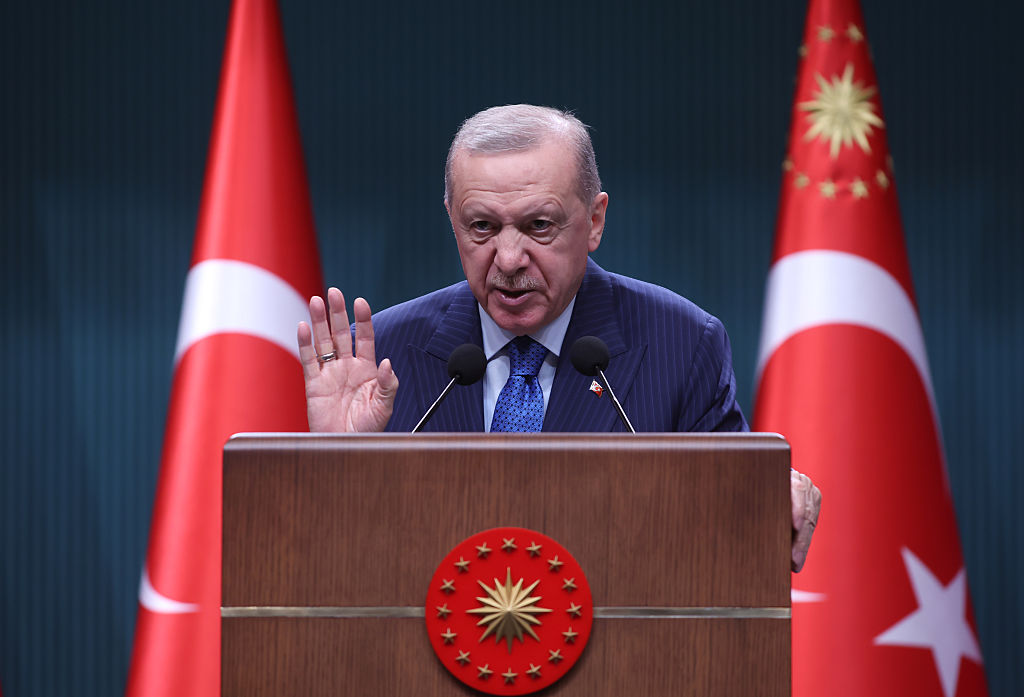Time is running out for Bibi Netanyahu. In the next couple of days, the fate of Israel’s next government will be decided. If opposition parties manage to reach a deal tonight, it will mean that Bibi and the Likud will no longer be in power — for the first time in 12 years.
Four rounds of elections made two things clear: that about two-thirds of the public votes for right-wing parties and that Bibi has become the Israeli’s right’s biggest problem. A dozen years in power has made Netanyahu arrogant, entitled and hated by a large portion of the public, including right-wing voters. This has been made worse by deep resentment towards his wife Sarah and son, Yair, both of whom have meddled in politics. This cost Likud votes — and may now cost it the government.
In efforts to form a coalition, Bibi has offered the three leaders of the right-wing parties, Avigdor Lieberman, Naftali Bennett and Gideon Sa’ar, rotation deals in return for their support. They all turned him down. All three have had a personal falling-out with Netanyahu. They also don’t trust him. Netanyahu signed a rotation agreement with Blue and White leader Benny Gantz in order to form the current government, a move that has divided Blue and White and lost Gantz support, only for Bibi to announce a few months later that he didn’t intend to hold up his end of the deal. Understandably, this lost him credibility for negotiating such deals. Even though the tide seemed to be turning in Bibi’s favor during Operation Guardian of the Walls, during which Bennett briefly suggested — in what may have only been a political ploy — that he might agree to a deal, things now seem grim again.
Netanyahu is scared. He has spent years demonizing his political opponents on the left. He now does the same against all those who seek to stand in his way. So determined is he to stay in power, Bibi uses any dirty trick in his playbook to gain support and undermine efforts by the opposition to form a coalition.
The new coalition is set to be made up of left-wing, right-wing and center parties, as well as an Arab party. They have little in common ideologically; their main goal is to replace Netanyahu as prime minister. If talks tonight end successfully, then the new coalition will have the 61 seats it needs to form a government. The opposition will hold 59 seats, made up mostly of right-wing parties, 30 of which will be Likud’s. In this case, Bibi will have limited options.
One option for him will be to use the new government’s lack of ideological common ground and disunity in order to destabilize and collapse it, thereby precipitating yet another round of elections. Netanyahu and his supporters could, for example, introduce a motion of no confidence against the government. All it would take is to convince two Knesset members from the coalition to vote with them — which, considering the nature of the coalition, is plausible. However, if the Orthodox parties — that hold 16 seats between them and are keen to maintain proximity to power — join the government, it will be unbeatable in a motion of no-confidence.
Another option, which is something he has spent the past fews weeks trying to do, is get two right-wing MPs from the parties in talks to join the new coalition, to quit their parties and join Likud. If this is to happen, it needs to happen quickly.
Even if Bibi is successful in collapsing the new government, a new election may prove particularly challenging. First, he will not be running as prime minister, which is a more difficult position to be in, especially considering the distraction caused by his ongoing corruption trial. Second, he is in a difficult position in his own party, with many MPs — mostly backbenchers — recognizing that Bibi’s behavior has turned voters away from Likud. As a result, they may take action to oust him as party leader before a fifth election.
If Bibi goes, this could be good news for Israel. A government formed of parties representing different ideologies and a wide range of views and factions may be unstable, but it may also be able to mend the many rifts in Israeli civil society. Leaders of the parties have declared they will prioritize working together to heal deep divisions — between left and right, Jews and Muslims, Orthodox and secular, and Ashkenazi and Sephardi Jews. For many Israelis, this will be a new dawn: flawed, uncertain, but bringing much-needed hope for a positive change after 12 years of Bibi and a long-standing political stalemate.
This article was originally published on The Spectator’s UK website.

























